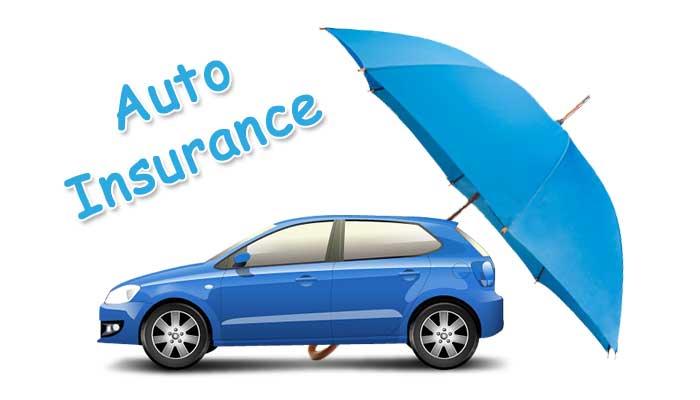Understanding Auto Insurance: Protecting Your Car, Finances, and Peace of Mind

Understanding Auto Insurance: Protecting Your Car, Finances, and Peace of Mind
Whether you’re commuting to work, running errands, or embarking on a weekend getaway, your vehicle is an essential part of daily life. Yet, the freedom of the open road comes with risks — from unexpected accidents to natural disasters or theft. That’s where auto insurance steps in to protect you, your passengers, and your financial well-being.
In this guide, we’ll break down the essentials of auto insurance — what it covers, why it’s important, how to choose the right policy, and how working with a trusted agency can make all the difference.
What Is Auto Insurance?
Auto insurance is a contract between you and your insurance company that helps protect you financially if you’re involved in an accident or your vehicle is damaged or stolen. In exchange for paying a premium, the insurer agrees to cover certain types of losses outlined in your policy.
Auto insurance isn’t just a legal requirement in most states — it’s a smart financial safeguard that shields you from potentially devastating expenses.
A standard auto insurance policy generally includes several key types of coverage, each designed to protect you in different situations.
Key Types of Auto Insurance Coverage
-
Liability Coverage
This is the foundation of most auto insurance policies. Liability coverage pays for injuries or property damage you cause to others in an accident. It’s typically divided into:-
Bodily Injury Liability (BIL): Covers medical expenses, lost wages, and legal fees if you injure someone.
-
Property Damage Liability (PDL): Covers repairs or replacement for another person’s vehicle or property you damage in an accident.
-
-
Collision Coverage
This covers the cost of repairing or replacing your vehicle if it’s damaged in a collision — regardless of who’s at fault. Whether you hit another car or a stationary object, collision coverage helps you get back on the road quickly. -
Comprehensive Coverage
Sometimes called “other-than-collision” coverage, comprehensive insurance protects your car from non-collision events such as theft, vandalism, fire, natural disasters, or even a broken windshield caused by debris. -
Personal Injury Protection (PIP) or Medical Payments Coverage
Depending on your state, this coverage helps pay for medical expenses for you and your passengers, regardless of who caused the accident. Some policies also include lost wages and rehabilitation costs. -
Uninsured/Underinsured Motorist Coverage
Unfortunately, not all drivers on the road have sufficient insurance. This coverage protects you if you’re hit by someone who doesn’t have insurance or whose policy limits are too low to cover your damages.
Why Auto Insurance Is So Important
Driving is unpredictable — even the most cautious drivers can face accidents caused by weather, road conditions, or other drivers. Without insurance, a single accident could result in thousands of dollars in damages and medical bills.
Here’s why every driver should prioritize having reliable auto insurance:
-
Financial Protection
The cost of repairing a vehicle after an accident can be staggering. Auto insurance ensures that you won’t have to bear the full burden of repairs or medical bills out of pocket. -
Legal Requirement
In most states, carrying at least a minimum level of liability insurance is mandatory. Driving without it can lead to fines, license suspension, and even legal penalties. -
Peace of Mind
With proper coverage, you can drive confidently knowing that you’re protected against unexpected events. It’s not just about meeting legal requirements — it’s about safeguarding your lifestyle. -
Protection Against the Unexpected
From deer collisions to hail damage, life on the road can surprise you in ways you never imagined. Auto insurance ensures you’re not left stranded — financially or otherwise.
How Auto Insurance Premiums Are Determined
Have you ever wondered why your neighbor’s insurance costs less than yours? Insurance premiums vary based on several factors, including:
-
Driving History: Drivers with clean records typically pay less.
-
Location: Urban areas with higher traffic and theft rates often lead to higher premiums.
-
Vehicle Type: Sports cars or luxury vehicles usually cost more to insure due to repair costs and theft risk.
-
Age & Experience: Younger or new drivers often face higher premiums.
-
Coverage Amounts: Higher limits and lower deductibles lead to higher premiums — but greater protection.
-
Credit Score: In some states, your credit history can influence your rate.
Understanding these factors helps you make informed decisions about your coverage and budget.
Tips to Save Money on Auto Insurance
While auto insurance is essential, that doesn’t mean it has to break the bank. Here are a few ways to lower your premium without compromising coverage:
-
Bundle Policies
Combine your home and auto insurance under one provider to qualify for multi-policy discounts. -
Maintain a Clean Driving Record
Avoid traffic violations and accidents. Many insurers reward safe drivers with significant discounts. -
Increase Your Deductible
Opting for a higher deductible can lower your monthly premiums. Just make sure you can afford to pay the deductible if needed. -
Install Safety Features
Anti-theft systems, airbags, and other safety upgrades can qualify you for discounts. -
Ask About Discounts
Many insurers offer special savings for good students, military members, or long-term customers. -
Compare Quotes Regularly
Insurance markets evolve. Reviewing your policy annually ensures you’re getting the best rate and coverage for your needs.
Choosing the Right Auto Insurance Policy
With so many options available, selecting the right policy can feel overwhelming. Here’s how to simplify the process:
-
Assess Your Needs
Consider your driving habits, vehicle value, and budget. If you drive long distances or own a new car, comprehensive and collision coverage may be essential. -
Understand the Coverage Limits
Don’t just settle for state minimums. Opt for coverage that truly protects your assets in case of a major accident. -
Compare Multiple Providers
Not all insurance companies offer the same benefits or customer service. Comparing policies helps you find a reliable balance between affordability and quality. -
Work With a Trusted Insurance Agency
Partnering with professionals who understand your local area, coverage requirements, and unique needs can save you time, money, and stress.
That’s where Fallon Insurance Agency excels — providing personalized guidance and tailored insurance solutions that fit your life perfectly. Their experienced team helps drivers find the right coverage at competitive rates, ensuring you’re protected from every possible angle.
Common Myths About Auto Insurance
Let’s clear up some common misconceptions:
-
Myth 1: Red cars cost more to insure.
Color doesn’t impact your premium — your driving record and vehicle type do. -
Myth 2: Older cars don’t need coverage.
Even older vehicles can incur high repair costs or cause expensive damages in accidents. -
Myth 3: Minimum coverage is enough.
Basic coverage might not fully protect you in serious accidents. Always assess your risk and upgrade when needed. -
Myth 4: Personal insurance covers business use.
If you use your car for work (like ridesharing or deliveries), you may need commercial coverage.
Final Thoughts
Accidents happen in the blink of an eye — but with the right auto insurance, you can ensure they don’t derail your life. From protecting your vehicle and finances to providing peace of mind on every drive, auto insurance is one of the smartest investments you can make.
Choosing a reliable agency like Fallon Insurance Agency ensures you get personalized coverage, expert advice, and dedicated support when you need it most. Because on the road of life, protection isn’t just a policy — it’s a promise.






